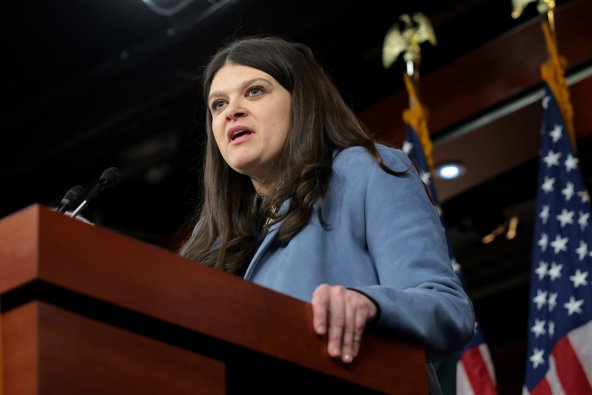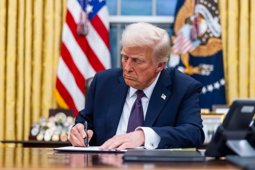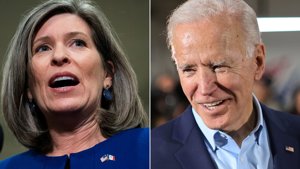
Haley Stevens' Feminist Foreign Policy Bill Sparks Debate
Haley Stevens, a self-described moderate, co-sponsored a feminist foreign policy bill, sparking debate in Michigan Senate race.
Stevens’ Role in Feminist Foreign Policy Legislation
Rep. Haley Stevens, D-Mich., a leading Democratic contender for Michigan’s open U.S. Senate seat, is facing fresh scrutiny over her record after co-sponsoring a resolution supporting a “feminist approach to all aspects of foreign policy.” The resolution, introduced in the U.S. House of Representatives on March 8, 2023, by Rep. Lois Frankel, D-Fla., was referred to the House Committee on Foreign Affairs and immediately drew attention due to its broad and progressive scope.
The resolution calls for a sweeping reimagining of U.S. foreign policy through a lens that prioritizes peace, gender equality, and environmental integrity. According to the text, the feminist framework seeks to “disrupt colonial, racist, patriarchal, and male-dominated power structures” and to “allocate significant resources, including research, to achieve that vision.” The model also covers foreign assistance, humanitarian response, trade, diplomacy, defense, immigration, and funding accountability mechanisms.
Rep. Sydney Kamlager-Dove, D-Calif., emphasized the philosophy behind the measure, stating, “An equitable world cannot exist without the womanist perspective. When we view the world through a lens that includes all women, we allow ourselves to see the whole picture, beyond the traditional, patriarchal framework, enabling us to move one step closer toward true equality.”
Support from Progressive Lawmakers and Political Debate
Stevens co-sponsored the resolution with several prominent progressive House Democrats, including Reps. Jasmine Crockett of Texas, Pramila Jayapal of Washington, Ilhan Omar of Minnesota, Ayanna Pressley of Massachusetts, and Rashida Tlaib of Michigan. The resolution takes an intersectional approach, aiming to address “inequalities among intersecting systems of discrimination, including discrimination on the basis of race, age, language, socioeconomic status, physical or mental ability, sex, including gender identity or expression and sexual orientation, indigenous identity, religion, ethnicity, citizenship, and nationality or migrant status.”
Its “feminist diplomacy” priorities include promoting peace through non-military conflict resolution and advocating for immigration policies that consider the effects on women, children, people of all gender identities, and Indigenous communities. Supporters argue that this approach is essential for advancing global human rights and correcting long-standing inequalities.
Despite this alignment with progressive “Squad” lawmakers, Stevens’ campaign continues to position her as a moderate voice in Michigan politics. During her 2022 congressional campaign, Stevens highlighted her ability to attract Republican votes, and in recent remarks to Bridge Michigan, she indicated plans to run on a moderate platform in the Democratic primary. A campaign spokesperson, Reeves Oyster, stated, “Haley is one of Michigan's most effective lawmakers and is focused on lowering costs, strengthening our manufacturing economy, and creating jobs – which is why polls show she's the strongest candidate in both the primary and general elections.”
Stevens’ team has also pointed to her recent legislative efforts aimed at reducing costs and boosting Michigan’s manufacturing sector as evidence of her practical approach to economic issues. However, her involvement with the feminist resolution has become a focal point for debate among primary voters and political observers.
The 2026 Michigan Senate Race: A Crowded Field
The race to replace retiring Sen. Gary Peters, D-Mich., is shaping up to be highly competitive. Other Democratic hopefuls include state Sen. Mallory McMorrow, former health officer Dr. Abdul El-Sayed, and former Michigan House Speaker Joe Tate. The Republican field features former Rep. Mike Rogers, Frederick Heurtebise, and Kent Benham. Lydia Christensen is running as an independent.
As the primary campaign intensifies, Stevens’ record on progressive legislation—including her advocacy for a feminist approach to foreign policy—will likely remain in the spotlight. The resolution’s intersectional language and aims could appeal to some Democratic voters while providing political ammunition for opponents seeking to paint Stevens as too far left for swing-state Michigan.
The outcome of the Michigan Senate race may hinge on how voters weigh candidates’ policy stances and legislative histories, especially as issues of equality, foreign policy, and economic opportunity continue to dominate political discourse. With an open seat and a field of high-profile contenders, Michigan’s Senate contest promises to be closely watched in the lead-up to 2026.






